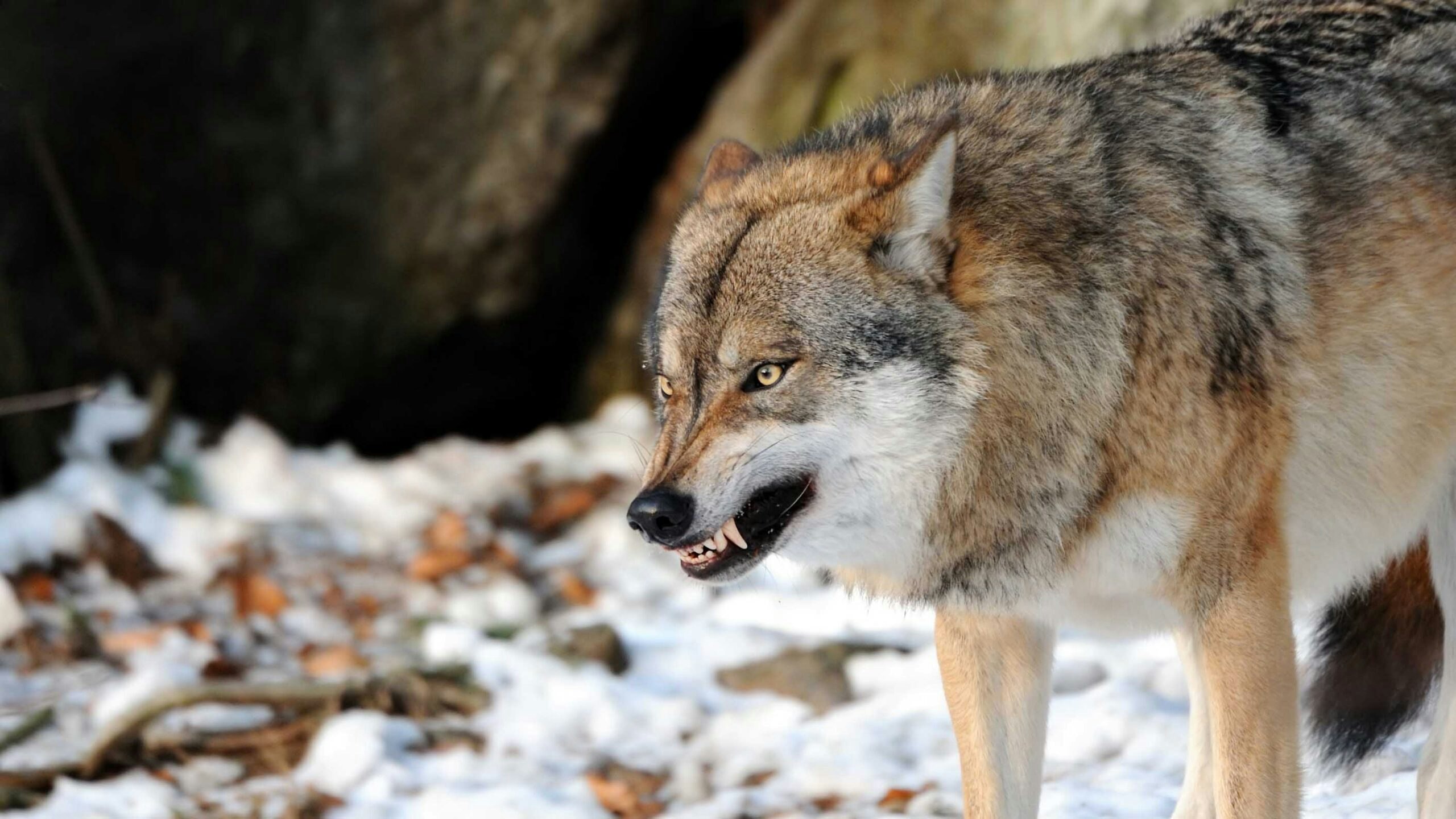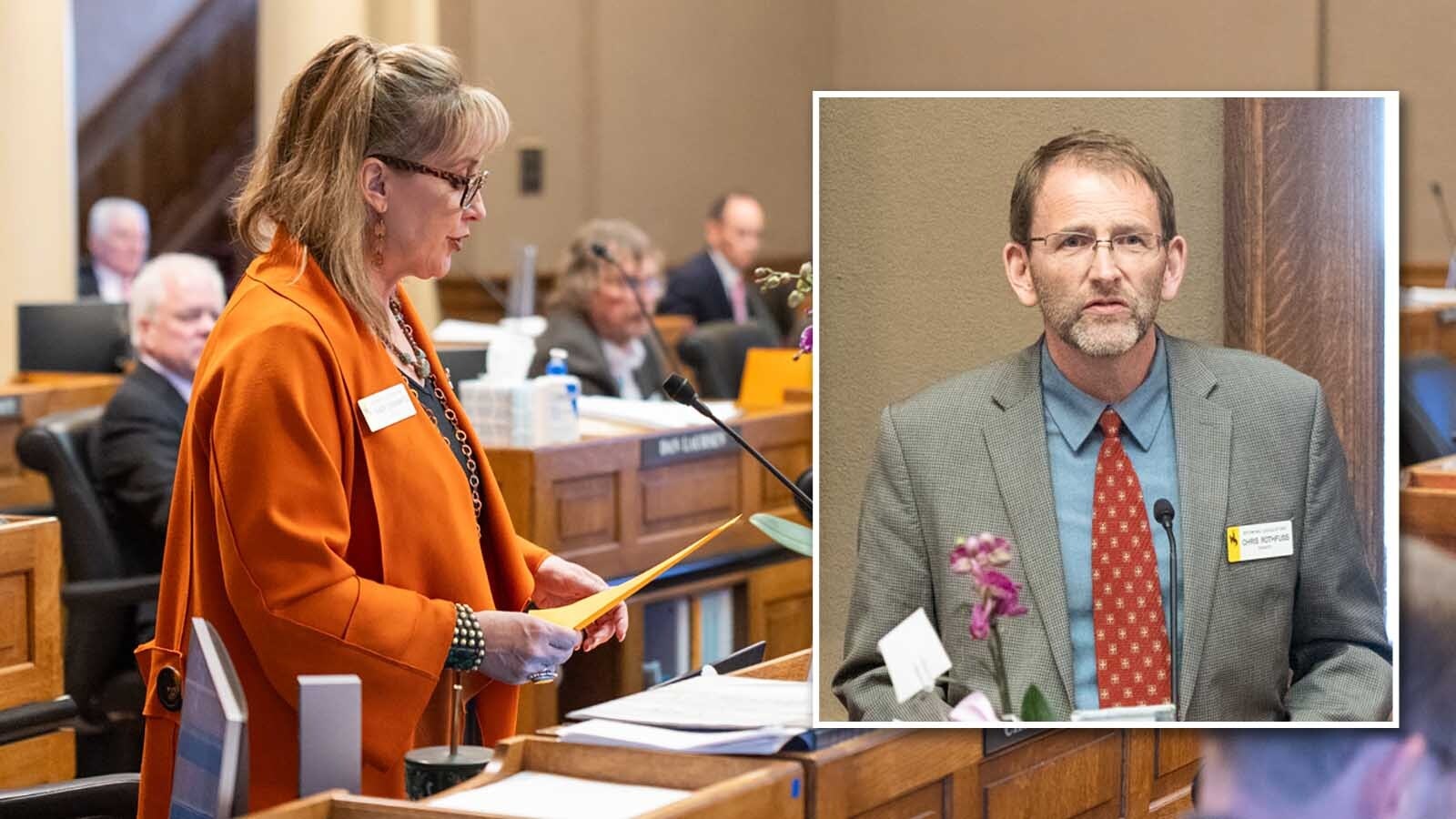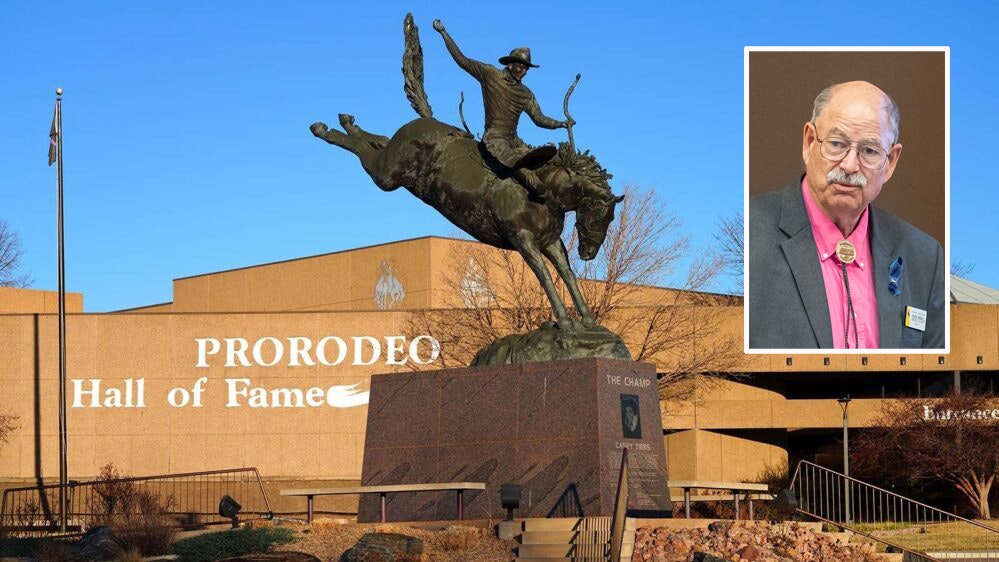It’s tough to get compensation for the sheep wolves kill when all that’s left for wildlife agents to find is “a little bit of wool in the brush,” said rancher Laura Pearson.
Wolves have all but ruined her family’s six-generation sheep ranching business in southwest Wyoming, Pearson told Wyoming legislators Tuesday while testifying for the House Agriculture, State and Public Lands and Water Resources Committee.
“We used to run about 14,000 ewes. Now we are running 740 ewes,” she said. “We’re not completely out of the sheep business, but we pretty much are, and it’s because of the wolves.”
She was testifying in favor of House Bill 188, which would set money aside to compensate ranchers for livestock killed by wolves.

The ‘Predator Zone’
In Wyoming, there are three zones of management for wolves, which were reintroduced into Yellowstone National Park in the mid-1990s.
Inside Yellowstone, they are fully protected under federal law and may not be hunted.
The Wyoming Game and Fish Department manages wolves inside a “trophy game zone” adjacent to Yellowstone.
There, wolves may be hunted, but only with a license and within bag limits during designated hunting seasons. Game and Fish also has a program to compensate ranchers who lose livestock to wolves inside that zone.
Beyond the trophy game zone – or in roughly 85% of Wyoming – wolves are considered a predatory animal. That means they can be killed on sight at any time with no license or bag limits.
House Bill 188 would set up a compensation fund for the losses ranchers suffer in the predator zone.
In that 85% of the state, it’s roughly estimated that there are 39 wolves, five active packs and one breeding pair, said Game and Fish Director Brian Nesvik.
In the trophy game zone, there are about 140-160 wolves, he said.
The bill initially called for $135,000 from the state’s general fund to be set aside to compensate losses in the predator zone over the next three years. The committee voted to boost that to $300,000, and also to forward the bill to the full House.
Wolf Kills Tough To Prove
The predator zone compensation program would be administered through the Wyoming Department of Agriculture.
Two-year compensation programs were launched in 2016 and 2020, said Jerry Johnson, the predator management coordinator for the Department of Agriculture.
Inside the trophy game zone, there have been 21 to 43 claims per year since fiscal year 2017, said Game and Fish director Brian Nesvik. Those have amounted to roughly $142,000-$390,000 in compensation payments to cattle and sheep ranchers every year.
Pearson said losses to wolves have been tough for her family to prove, which means they frequently weren’t compensated.
“There was a pack of 26 wolves on us. We were losing 56 lambs every two weeks,” she said. “But by the time wildlife agents would get up there, there wouldn’t be anything left but a little bit of wool in the brush.”
Expanding Their Range
Maintaining state control over wolves is vital, Nesvik said. That’s why it’s important to maintain a healthy wolf population inside the trophy game management zone. If wolf numbers there dip too low, federal protections for them will kick back in.
When that’s happed in the past, the wolf population has risen to as many as 250, he said.
Wolves have been spotted “all up and down the Bighorns” and have killed livestock in the Muddy Gap area, Nesvik said.
However, wolves that stray too far from the general vicinity of Yellowstone and start killing livestock are usually quickly shot by locals, he said.
Even so, wolves might start entering Wyoming from the south, said committee member Rep. Bob Davis, R-Baggs.
“The good state to the south of us is re-introducing these (wolves) also,” he said. “There should be probably be a little more activity,” he said.
He was referring to Colorado’s plans to reintroduce roughly 50 wolves by the end of this year. A small pack – started by wolves the migrated from Wyoming – is already in the North Park area of Colorado.
Three wolves shot just over the Wyoming side of the border last fall are suspected to have come from that pack.
No Love For The Feds
Compensation is the least Wyoming can do for ranchers who have suffered because of wolves, said the bill’s primary sponsor, Rep. John Winter, R-Thermopolis.
In his opinion, the initial release of wolves in to Yellowstone “was done illegally” and earlier than federal officials had indicated, he said.
Pearson agreed.
“The introduction of wolves was just another program where the federal government decided that they knew better what was good for Wyoming than the Wyoming citizens,” she said.





